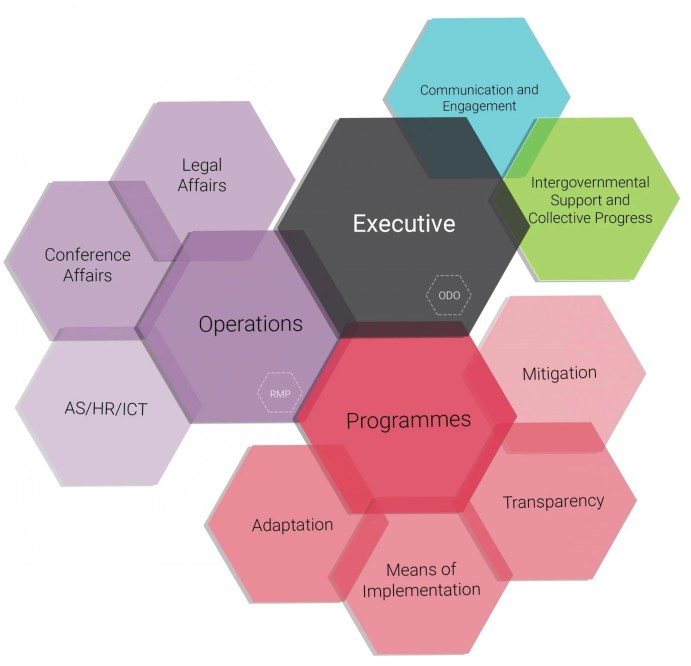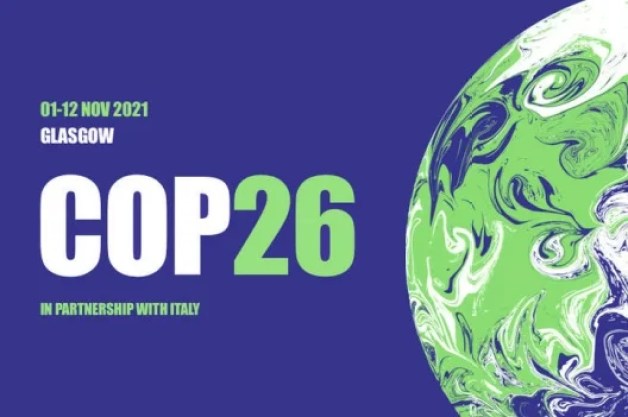What is UNFCCC
The UN Framework Convention on Climate Change (UNFCCC) was signed in 1992 during the United Nations Conference on Environment and Development, generally known as the Earth Summit, the Rio Summit, or the Rio Conference. The UNFCCC entered into force on 21 March 1994. Today, it has near-universal membership. The 197 countries that have ratified the Convention are called Parties to the Convention. Preventing “dangerous” human interference with the climate system is the ultimate aim of the UNFCCC.

Objective
- The ultimate goal of the Convention, according to Article 2, is to “achieve the stability of greenhouse gas concentrations in the atmosphere at a level that would prevent harmful anthropogenic interference with the climate system.”
- This goal is qualified in that it “shall be reached within a time frame adequate to allow ecosystems to naturally adjust to climate change, to guarantee that food supply is not threatened, and to allow economic development to proceed in a sustainable way.”

What is COP(Conference of the Parties)
The COP(Conference of the Parties) is the Convention’s important decision-making body. At the COP, all States that are Parties to the Convention are represented, and they review the Convention’s implementation, as well as any other legal instruments adopted by the COP, and make decisions necessary to promote the Convention’s effective implementation, including institutional and administrative arrangements.
In simple words, we may say about COP(Conference of the Partier) that it is the decision-making body responsible for monitoring and reviewing the implementation of the United Nations Framework Convention on Climate Change. the 197 nations and territories – called Parties – that have signed on to the Framework Convention. The evaluation of national communications and emission inventories presented by Parties is a major responsibility for the COP(Conference of the Parties). The COP (Conference of the Partier) evaluates the consequences of the actions adopted by Parties and the progress made toward the ultimate goal of the Convention based on this information.
This year COP26 was held in Scotland, United Kingdom.
History of COP Meetings
| COP Meeting | Venue | Report | Year |
| 1 | Berlin, Germany | Berlin climate change conference | 1995 |
| 2 | Geneva Switzerland | Geneva Climate Change conference | 1996 |
| 3 | Kyoto Japan | Kyoto climate change conference | 1997 |
| 4 | Buenos Aires, Argentina | Buenos Aires Climate Change Conference | 1998 |
| 5 | Bonn, Germany | Bonn Climate Change Conference | 1999 |
| 6 | The Hague, Netherlands | The Hague Climate Change Conference | 2000 |
| 6-2 | Bonn, Germany | Bonn Climate Change Conference | 2001 |
| 7 | Marrakech, Morocco | Marrakech Climate Change Conference | 2001 |
| 8 | New Delhi, India | New Delhi Climate Change Conference | 2002 |
| 9 | Milan, Italy | Milan Climate change Conference | 2003 |
| 10 | Buenos Aires, Argentina | Buenos Aires Climate Change Conference | 2004 |
| 11 | Montreal Canada | Montreal Climate change Conference | 2005 |
| 12 | Nairobi, Kenya | Nairobi Climate change conference | 2006 |
| 13 | Bali Indonesia | Bali Climate Change Conference | 2007 |
| 14 | Poznan Poland | Poznan Climate Change Conference | 2008 |
| 15 | Copenhagen Denmark | Copenhagen Climate Change Conference | 2009 |
| 16 | Cancun Mexico | Cancun Climate Change Conference | 2010 |
| 17 | Durban South Africa | Durban Climate Change Conference | 2011 |
| 18 | Doha Qatar | Doha Climate Change Conference | 2012 |
| 19 | Warsaw Poland | Warsaw Climate Change Conference | 2013 |
| 20 | Lima Peru | Lima Climate Change Conference | 2014 |
| 21 | Paris France | Paris Climate Change Conference | 2015 |
| 22 | Marrakech, Morocco | Marrakech Climate Change Conference | 2016 |
| 23 | Bonn, Germany | UN Climate Change Conference | 2017 |
| 24 | Katowice Poland | Katowice Climate Change Conference | 2018 |
| 25 | Madrid Spain | UN Climate Change Conference | 2019 |
| 26 | Glasgow UK | Glasgow Climate Change Conference | 2021 |
COP 26(Conference of the Partier)
“COP 26” (Conference of the Partier)is a major United Nations climate change summit taking place in Glasgow from 31 October -12 November 2021 under the presidency of the UK Government. This is the first time the UK hosts the conference, which was originally scheduled for November 2020 but postponed due to the Covid-19 pandemic.

Importance of COP 26
- In COP26, 2021 all the respected nations are asked to submit their new long-term goals; so tackling the global climate emergency will be high on the agenda.
- It will have to complete the task that COP 25 was unable to do — establishing the rules for a global carbon market.
- From 2021 onwards, the implementation of the 2015 Paris Agreement will be the key driver of international climate action
Goals of COP 26
- Secure global net-zero by mid-century and keep 1.5 degrees within reach
Countries are being asked to come forward with ambitious 2030 emissions reductions targets that align with reaching net zero by the middle of the century.
–To deliver on these stretching targets, countries will need to:
- accelerate the phase-out of coal.
- curtail deforestation.
- speed up the switch to electric vehicles.
- Encourage investment in renewables.
- Adapt to protect communities and Natural Habitats
The climate is already changing and it will continue to change even as we reduce emissions, with devastating effects.
At COP26 we need to work together to enable and encourage countries affected by climate change to :
- protect and restore ecosystems.
- build defenses, warning systems, and resilient infrastructure and agriculture to avoid loss of homes, livelihoods, and even lives.
- Mobilise Finance
To deliver on our first two goals, developed countries must make good on their promise to mobilize at least $100bn in climate finance per year by 2020.
International financial institutions must play their part and we need to work towards unleashing the trillions in private and public sector finance required to secure global net zero.
- Work together to deliver
We can only rise to the challenges of the climate crisis by working together.
At COP26 We Must:
- finalize the Paris Rulebook (the detailed rules that make the Paris Agreement operational)
- Accelerate action to tackle the climate crisis through collaboration between governments, businesses, and civil society.

